
CONDITION: Zika virus infection
Key facts
Zika virus is a mosquito-borne flavivirus that was first identified in Uganda in 1947 in monkeys through a network that monitored yellow fever. It was later identified in humans in 1952 in Uganda and the United Republic of Tanzania. Outbreaks of Zika virus disease have been recorded in Africa, the Americas, Asia and the Pacific. From the 1960s to 1980s, human infections were found across Africa and Asia, typically accompanied by mild illness. The first large outbreak of disease caused by Zika infection was reported from the Island of Yap (Federated States of Micronesia) in 2007. In July 2015 Brazil reported an association between Zika virus infection and Guillain-Barré syndrome. In October 2015 Brazil reported an association between Zika virus infection and microcephaly.

The incubation period (the time from exposure to symptoms) of Zika virus disease is not clear, but is likely to be a few days. The symptoms are similar to other arbovirus infections such as dengue, and include fever, skin rashes, conjunctivitis, muscle and joint pain, malaise, and headache. These symptoms are usually mild and last for 2-7 days.
Clinical Resources:
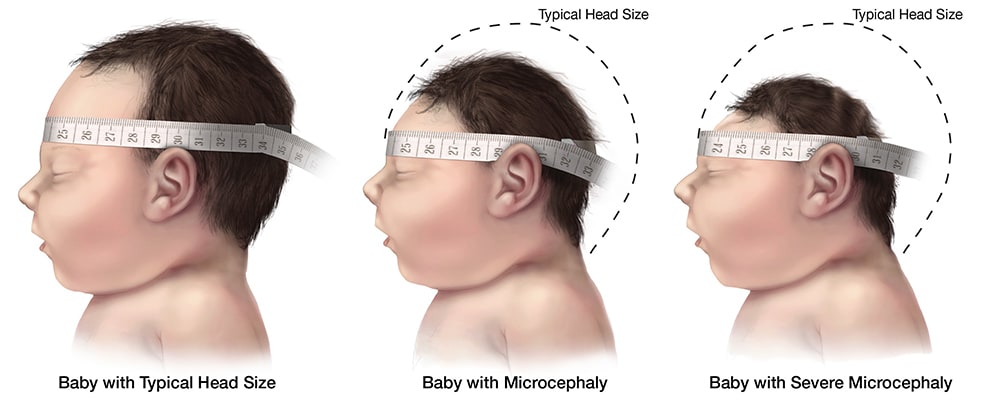
Measuring Head Circumference
Based on a systematic review of the literature up to 30 May 2016, WHO has concluded that Zika virus infection during pregnancy is a cause of congenital brain abnormalities, including microcephaly; and that Zika virus is a trigger of Guillain-Barré syndrome. Intense efforts are continuing to investigate the link between Zika virus and a range of neurological disorders, within a rigorous research framework.
Zika virus is primarily transmitted to people through the bite of an infected mosquito from the Aedes genus, mainly Aedes aegypti in tropical regions. Aedes mosquitoes usually bite during the day, peaking during early morning and late afternoon/evening. This is the same mosquito that transmits dengue, chikungunya and yellow fever. Sexual transmission of Zika virus is also possible. Other modes of transmission such as blood transfusion are being investigated.
Infection with Zika virus may be suspected based on symptoms and recent history of travel (e.g. residence in or travel to an area with active Zika virus transmission). A diagnosis of Zika virus infection can only be confirmed through laboratory tests on blood or other body fluids, such as urine, saliva or semen.
Zika virus disease is usually mild and requires no specific treatment. People sick with Zika virus should get plenty of rest, drink enough fluids, and treat pain and fever with common medicines. If symptoms worsen, they should seek medical care and advice. There is currently no vaccine available.
Protection against mosquito bites is a key measure to prevent Zika virus infection. This can be done by wearing clothes (preferably light-coloured) that cover as much of the body as possible; using physical barriers such as window screens or closing doors and windows; sleeping under mosquito nets; and using insect repellent containing DEET, IR3535 or icaridin according to the product label instructions. Special attention and help should be given to those who may not be able to protect themselves adequately, such as young children, the sick or elderly. Travellers and those living in affected areas should take the basic precautions described above to protect themselves from mosquito bites.
It is important to cover, empty or clean potential mosquito breeding sites in and around houses such as buckets, drums, pots, gutters, and used tyres. Communities should support local government efforts to reduce mosquitoes in their locality. Health authorities may also advise that spraying of insecticides be carried out.
Zika virus can be transmitted through sexual intercourse. This is of concern due to an association between Zika virus infection and adverse pregnancy and fetal outcomes.
For regions with active transmission of Zika virus, all people with Zika virus infection and their sexual partners (particularly pregnant women) should receive information about the risks of sexual transmission of Zika virus. WHO recommends that sexually active men and women be correctly counselled and offered a full range of contraceptive methods to be able to make an informed choice about whether and when to become pregnant in order to prevent possible adverse pregnancy and fetal outcomes. Women who have had unprotected sex and do not wish to become pregnant due to concerns about Zika virus infection should have ready access to emergency contraceptive services and counselling. Pregnant women should practice safer sex (including correct and consistent use of condoms) or abstain from sexual activity for at least the whole duration of the pregnancy.
For regions with no active transmission of Zika virus, WHO recommends practising safer sex or abstinence for a period of six months for men and women who are returning from areas of active transmission to prevent Zika virus infection through sexual intercourse. Sexual partners of pregnant women, living in or returning from areas where local transmission of Zika virus occurs should practice safer sex or abstain from sexual activity throughout the pregnancy.
WHO is supporting countries to control Zika virus disease by taking actions outlined in the “Zika Strategic Response Framework":
Source: WHO
Zika virus was first discovered in 1947 and is named after the Zika Forest in Uganda. In 1952, the first human cases of Zika were detected and since then, outbreaks of Zika have been reported in tropical Africa, Southeast Asia, and the Pacific Islands. Zika outbreaks have probably occurred in many locations. Before 2007, at least 14 cases of Zika had been documented, although other cases were likely to have occurred and were not reported. Because the symptoms of Zika are similar to those of many other diseases, many cases may not have been recognized.
Zika can be transmitted
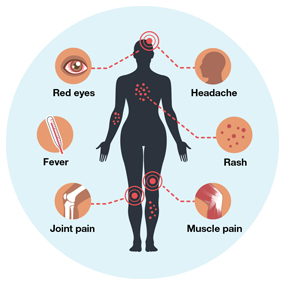
Many people infected with Zika virus won’t have symptoms or will only have mild symptoms. The most common symptoms of Zika are
Symptoms can last for several days to a week. People usually don’t get sick enough to go to the hospital, and they very rarely die of Zika. Once a person has been infected with Zika, they are likely to be protected from future infections.
Zika infection during pregnancy can cause a birth defect of the brain called microcephaly and other severe brain defects. It is also linked to other problems, such as miscarriage, stillbirth, and other birth defects. There have also been increased reports of Guillain-Barré syndrome, an uncommon sickness of the nervous system, in areas affected by Zika.
There is no vaccine to prevent Zika. The best way to prevent diseases spread by mosquitoes is to protect yourself and your family from mosquito bites.





There is no specific medicine or vaccine for Zika virus. Treat the symptoms:
Measuring Head Circumference

Many people infected with Zika virus won’t have symptoms or will only have mild symptoms. The most common symptoms of Zika are
Zika is usually mild with symptoms lasting for several days to a week. People usually don’t get sick enough to go to the hospital, and they very rarely die of Zika. For this reason, many people might not realize they have been infected. Symptoms of Zika are similar to other viruses spread through mosquito bites, like dengue and chikungunya.
Zika virus usually remains in the blood of an infected person for about a week. See your doctor or other healthcare provider if you develop symptoms and you live in or have recently traveled to an area with risk of Zika. Your doctor or other healthcare provider may order blood tests to look for Zika or other similar viruses like dengue or chikungunya. Once a person has been infected, he or she is likely to be protected from future infections.
See your doctor or other healthcare provider if you have the symptoms described above and have visited an area with risk of Zika. This is especially important if you are pregnant. Be sure to tell your doctor or other healthcare provider where you traveled.
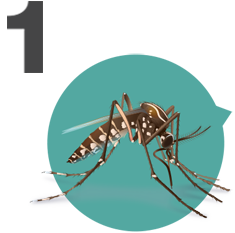
Many areas in the United States have the type of mosquitoes that can spread Zika virus. These mosquitoes bite during the day and night. Zika can also be passed through sex from a person who has Zika to his or her sex partners.
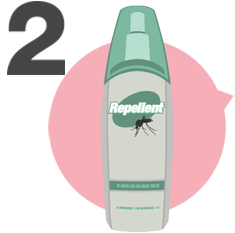
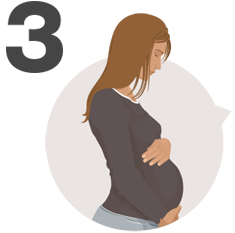
Zika infection during pregnancy can cause a serious birth defect called microcephaly that is a sign of incomplete brain development. Doctors have also found other problems in pregnancies and among fetuses and infants infected with Zika virus before birth. If you are pregnant and have a partner who lives in or has traveled to an area with risk of Zika, do not have sex, or use condoms the right way, every time, during your pregnancy.

If you must travel to one of these areas, talk to your healthcare provider first and strictly follow steps to prevent mosquito bites and sexual transmission during your trip. See CDC’s domestic guidance for information on travel within the continental US and Hawaii.
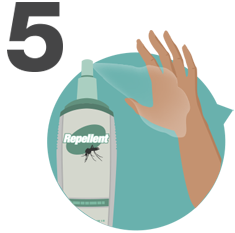
During the first week of infection, Zika virus can be found in a person’s blood and can pass from an infected person to a mosquito through mosquito bites. An infected mosquito can then spread the virus to other people.
Couples with a partner who lives in or has traveled to an area with risk of Zika should take steps to protect during sex.
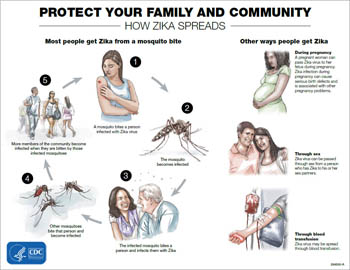
Zika virus is transmitted to people primarily through the bite of an infected Aedes species mosquito (Ae. aegypti and Ae. albopictus). These are the same mosquitoes that spread dengue and chikungunya viruses.
Zika infection during pregnancy can cause a birth defect of the brain called microcephaly and other severe brain defects. It is also linked to other problems, such as miscarriage, stillbirth, and other birth defects. There have also been increased reports of Guillain-Barré syndrome, an uncommon sickness of the nervous system, in areas affected by Zika.
Learn about risks >>
There is no vaccine to prevent Zika. The best way to prevent diseases spread by mosquitoes is to protect yourself and your family from mosquito bites.




Learn about prevention >>
There is no specific medicine or vaccine for Zika virus. Treat the symptoms:
There is no specific medicine or vaccine for Zika virus.
Tell your doctor or healthcare provider and take these steps to protect others.
Take steps to protect yourself from exposure to the person’s blood and body fluids (urine, stool, vomit). If you are pregnant, you can care for someone with Zika if you follow these steps.
If you visit a family member or friend with Zika in a hospital, you should avoid contact with the person’s blood and body fluids and surfaces with these fluids on them. Helping the person sit up or walk should not expose you. Make sure to wash your hands before and after touching the person.
Zika virus was first discovered in 1947 and is named after the Zika Forest in Uganda. In 1952, the first human cases of Zika were detected and since then, outbreaks of Zika have been reported in tropical Africa, Southeast Asia, and the Pacific Islands. Zika outbreaks have probably occurred in many locations. Before 2007, at least 14 cases of Zika had been documented, although other cases were likely to have occurred and were not reported. Because the symptoms of Zika are similar to those of many other diseases, many cases may not have been recognized.
Zika 101 Presentation
Zika: The Basics of the Virus and How to Protect Against It

No, bedbugs do not cause scabies. Both of these are completely different infestations. Let’s learn more.
Before delving into the differences, check the main points of matches between the bedbug bites and scabies
Now, here are the points of differences between scabies and bedbug bites:
- See more at: http://www.drscabies.com/can-bedbugs-cause-scabie#sthash.XFVKpIiN.dpuf
Source: CDC
Zika & Pregnancy
What we know

Zika virus can be passed from a pregnant woman to her fetus.
Infection during pregnancy can cause a birth defect called microcephaly and other severe fetal brain defects
Zika primarily spreads through infected mosquitoes. You can also get Zika through sex without a condom with someone infected by Zika, even if that person does not show symptoms of Zika.
What we do not know
How likely it is that Zika infection will affect your pregnancy.
If your baby will have birth defects if you are infected while pregnant.
The full range of health effects that Zika virus infection during pregnancy might lead to.
Learn more on CDC’s Zika and Pregnancy site…
If you have questions about a possible infection or diagnosis
If families would like to speak to someone about a possible Zika virus infection or diagnosis during pregnancy and risk to the baby, please contact MotherToBaby. MotherToBaby experts are available to answer questions in English or Spanish by phone or chat. The free and confidential service is available Monday-Friday 8am-5pm (local time). To reach MotherToBaby:
Call 1-866-626-6847
Source: CDC